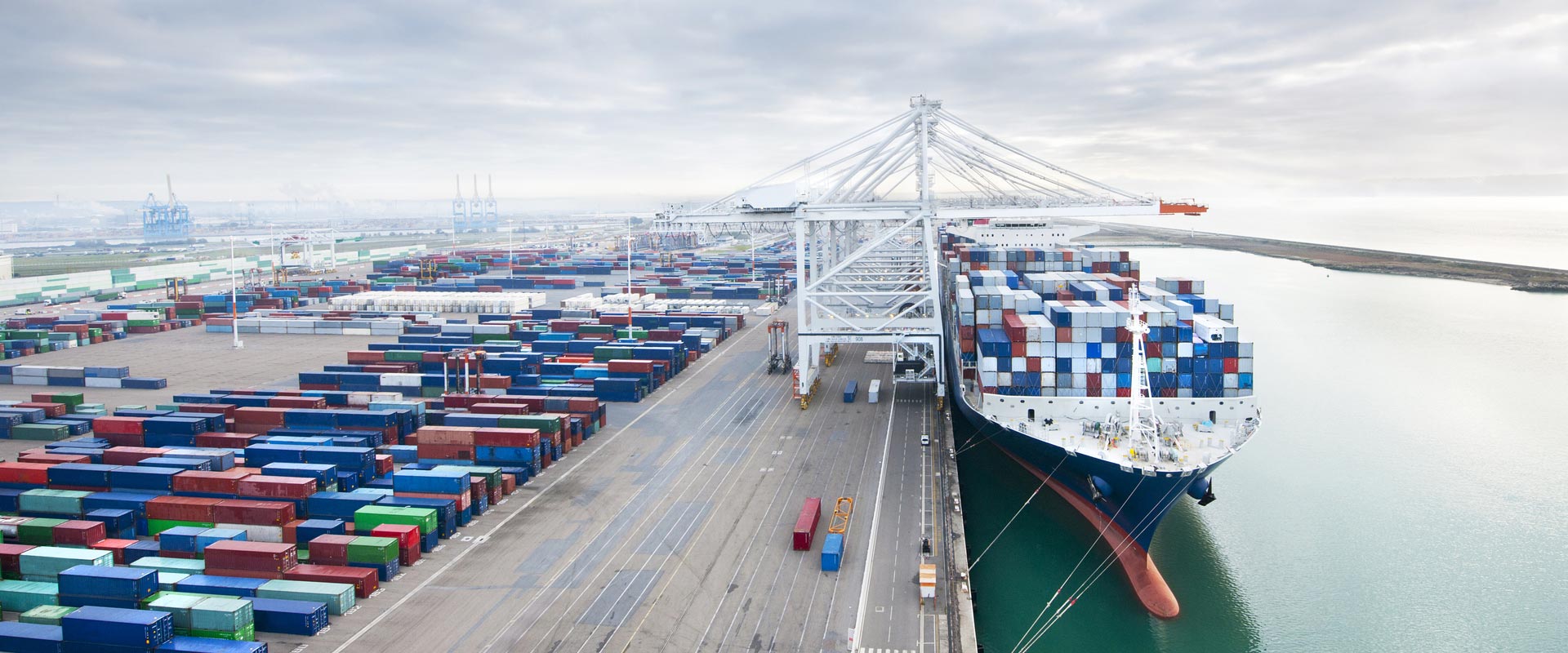- Optimistic Outlook: 80% of executives expect higher export revenues in 2024, driven by market demand, reduced risks, and AI.
- Risk Management: Mitigate geopolitical and supply chain risks by adjusting export targets, protecting cash flow, and reconfiguring supply chains.
- Innovation and Support: Invest in AI and leverage government subsidies to enhance export strategies, with many companies reporting positive impacts.
Summary
Key Takeaways
An array of economic and geopolitical challenges – both local and global – may have slowed international trade in recent years but they have not dampened the export ambitions of companies in many of the world’s largest economies.
The latest Allianz Trade Global Trade Survey of over 3,000 companies in China, France, Germany, Italy, Poland, Spain, the UK and the US shows elevated optimism, with around 80% of executives foreseeing business revenue from exports increasing during 2024. Moreover, nearly 40% expect an uplift of more than 5% with that rosier picture shared by 32% in the UK.
It’s an optimism fueled by many factors, but three stand out from the survey: a broad expectation that market demand will support increases in the prices of exported goods; a sense that both energy and transport risks have declined significantly compared to 2023; and an across-the-board expectation that AI will have a positive impact on company productivity.
Taming trade risks
Fulfilling those ambitions is going to take some smart decision-making. As the survey highlights, exporters are all too aware of the risks they will need to negotiate in the near term. Their long list of concerns includes:
- Geopolitical risks
- Protectionist restrictions on international trade
- A rise in non-payments and financing risks
- Shortages of inputs and labor
- Supply-chain/transport disruption.
But their input to the survey also suggests some valuable insight into ways those risks could be mitigated, with five possible courses of action standing out.
1. Redraw your ‘targeted-for-export’ map
Geopolitics has driven a partial reordering of trade patterns in recent years, with companies now more selective in their targets for global expansion. And with elections taking place in economies that account for close to 60% of global GDP, exporters are particularly concerned about how newly elected governments could alter the landscape for international trade.
In the Allianz Trade survey, risks associated with domestic and international politics, as well as protectionism, is the most frequently chosen top risk that could threaten export activity in 2024, identified by 73% of companies. For many the focus is primarily on their home country’s upcoming elections rather than the global political scene. However, with the potential for largescale policy changes on tariffs and trade barriers that could result from a change of US president, a relatively small proportion (27%) also point to the US election as representing a risk to their supply chains in the coming year or two.
To help offset those risks, companies need a clear risk profile for each of the countries they intend to target for exports – and to be prepared to redraw that list as situations change. An invaluable decision aid in that ongoing process is Trade Match, our online tool that highlights the export risks and opportunities for 17 sectors and in 70 markets around the world. As well as drawing on a wealth of historical company data and our up-to-date trade forecasts, it takes input from our proprietary sector risk ratings and country risk ratings.
These country reports can provide you with an assessment of the economic, political, commercial, financing, and business environment risk associated with a country, its strengths and weaknesses, economic outlook, and trade structure by destination and origin. Alongside, our sector reports help by rating an industry by its level of internationalisation, capital intensity, profitability, and fragmentation, as well as highlighting its positive and negative attributes, latest developments, and the shape of its subsectors.
2. Protect cashflow from the growing threat of insolvencies
For exporters, non-payment is a concern that’s always present. Nearly 55% of companies already wait more than 50 days on average to have an invoice paid. Our 2024 survey shows non-payment risks ranking among the top three biggest risk factors for companies, with nearly 40% expecting a rise in non-payments and 42% expecting to wait longer for international invoices to be honored.
That perception of a drain on cashflow stems from the impact of slower growth rates in many economies, disruptions to trade and supply chains, and general geopolitical uncertainties.
Their reading of the market direction is well-founded. Allianz Trade forecasts a jump in insolvencies during 2024 of 9%. The international outlook is not consistent, however.
Only around 30% of the managers questioned in Spain, the US, and UK expect a rise in the risk of non-payments, while in China and Germany 37% anticipate an increase. Whereas exporters in France, Poland and Italy seem more worried about the risk of non-payment increasing (47%, 44% and 42%, respectively). In contrast. There’s also a contrasting picture at an overall sector level, with high percentages of exporters worried about the risk of non-payment in construction (60%), electricity (43%), and the paper industry (49%).
By adding protection against the threat of such high levels of non-payment, companies can trade internationally with a greater degree of confidence. Allianz Trade’s Trade Credit Insurance covers your receivables against unexpected commercial and political risks (customer bankruptcy, changes to import and export regulations, and more) so your cash flow is safeguarded and the impact of bad debt is minimised. When a customer fails to pay – whether it’s due to insolvency, refusal, or an inability to pay under the terms of the contract, our policy indemnifies your losses.
Trade Credit Insurance can also inform your credit risk decisions by providing valuable insight into who you should extend credit to and the limits to offer. By monitoring the creditworthiness of your customers – and changing their grade based on their financial health, sector outlook, and company governance, the solution acts as an early warning system. That is of particular importance when you are selling through a B2B e-commerce channel, where our Allianz Trade pay solution can deliver unrivalled protection by offering go/no-go decisions on whether to extend credit.
3. Reconfigure your supply chain
From conflict in the Middle East to tighter trade restrictions and higher tariffs between the US and China, geopolitics are driving a partial reordering of global trade patterns. Many companies are now pursuing more targeted globalisation strategies, as well as adopting near- and on-shore production as they reconfigure their supply chains.
When asked about the top three risks that pose the greatest threat to their supply chains and offshore production, companies most often chose issues related to the complexity, concentration, or competition in their extended supply chains, but risks related to geopolitics, politics and protectionism also featured.
To mitigate supply-chain disruptions, the most preferred actions currently being taken by companies are improvements to supply chain risk management, increased due diligence on suppliers, and the purchase of supply-chain insurance.
Improving supply-chain risk management can take many forms, but one in two respondents to the survey are considering relocating parts of their supply chain in response to increasing geopolitical risks, especially companies in Germany, China, and Spain. That is less of a priority for companies in the US – where relocations may be more related to sovereignty concerns rather than geopolitical risks.
In terms of sectors, more companies in the agri-food, energy, metals, and textiles sectors seem to be mulling the relocation of parts of their supply chains, while companies in the computers and telecom, household equipment, paper, and pharmaceutical sectors seem less keen on the idea. Furthermore, exporters still seem concerned by the shadow of supply-chain disruptions, with nearly 50% listing shortages of inputs and labor among the top risks that could negatively impact export activity in 2024.
The volatility of supply chains is also evident in another form of risk mitigation. A larger share of exporters (34% versus 30%) are opting to insure their supply chains against disruption this year compared to 2023, a trend that is particularly evident in the US, the UK and Poland. The share of respondents buying supply-chain insurance to mitigate disruption stood at 35% in the UK (from 29%). Indeed, insurance is now a top three course of action for mitigating supply-chain disruptions; a year ago it was the seventh.
To provide robust insurance cover on your trading activities – no matter where those might be – Allianz Trade maintains a commercial information base of more than 83 million companies worldwide. Our Grade Check service, keeps a close eye on the creditworthiness of your existing and potential customers and dynamically sets an appropriate – and safe – credit limit depending on their financial health.
From our experts to your inbox
– never miss a thing
4. Invest in innovation – particularly AI
To support their international export strategies, many companies – especially those in France and the US – see investment in new product development as a spur. Overall in the survey, product innovation was deemed the leading priority (by 19%), but the sentiment is by no way universal. German, Spanish and Chinese exporters are keener to focus on targeting new markets, and UK exporters prioritise investment in their own market for 2024, which was last year’s top priority overall for supporting export strategies.
Some of that focus on innovation is being driven by companies’ enthusiasm for AI as a route to transforming their trading prospects. Those in China and Poland are banking most heavily on AI: 81% of Chinese exporters and 79% of Polish ones mentioned AI applications as the most impactful digital driver for their international growth, compared to about 60% in other countries. The takeaway: even outside the world of AI tech development, the race to apply AI for competitive edge is well underway.
At a simple level that takes the form of companies using AI to rapidly and inexpensively create a presence in new markets, using the technology to build websites, create local language marketing materials, and building e-commerce channels. They are also taking advantage of AI tools that can comprehend local legal frameworks and cultural nuances, while divining new market opportunities.
5. Don’t miss out on government support
Governments around the world offer a wealth of resources and financial help to encourage export initiatives. As well as subsidies, companies can typically access country-specific guides and seminars on exporting, trade agreements and restrictions, as well as explore opportunities to join trade missions to their targeted countries or sectors.
Around 80% of the exporters in the Allianz Trade survey say they saw a positive impact from government measures in the past 12 months, with companies indicating their favored injection of aid comes in the form ‘production-side measures’ such as sector-specific subsidies, green support, and subsidies for inputs (such as energy price caps).
Of course, different governments offer different levels of help. A larger share of exporters in the UK (87%) experienced a net positive impact, with close to 27% of those respondents indicating that they experienced a ‘significant positive’ impact. Almost as strong was the US with 83% of respondents seeing a positive impact, with 29% indicating a significant positive impact.
Four sectors stand out as reaping the most benefit from state support: pharmaceuticals (88%), construction (86%), household equipment (84%), and automotive (83%). And when it comes to help in reducing their carbon footprint, companies have two standout requests for further support: more tax breaks for green production and the reduction or removal of customs duties on green products.
To protect your business against the risks of international trading while taking advantage of export opportunities, discover more about Allianz Trade’s Credit Insurance solutions.
You might also be interested in…
What is credit control and how to implement a credit control process?
What can you do about an overdue invoice?
Late payments: how to collect and avoid them
Let's talk...
For a free credit insurance consultation call our UK team, 09:00-17:00 Mon-Fri.

Our expertise and commitment
Allianz Trade is the global leader in trade credit insurance and credit management, offering tailored solutions to mitigate the risks associated with bad debt, thereby ensuring the financial stability of businesses. Our products and services help companies with risk management, cash flow management, accounts receivables protection, Surety bonds, Business Fraud Insurance, debt collection processes and e-commerce credit insurance ensuring the financial resilience for our client’s businesses. Our expertise in risk mitigation and finance positions us as trusted advisors, enabling businesses aspiring for global success to expand into international markets with confidence.
Our business is built on supporting relationships between people and organisations, relationships that extend across frontiers of all kinds - geographical, financial, industrial, and more. We’re constantly aware that our work has an impact on the communities we serve and that we have a duty to help and support others. At Allianz Trade, we’re strongly committed to fairness for all without discrimination, among our own people and in our many relationships with those outside our business.




